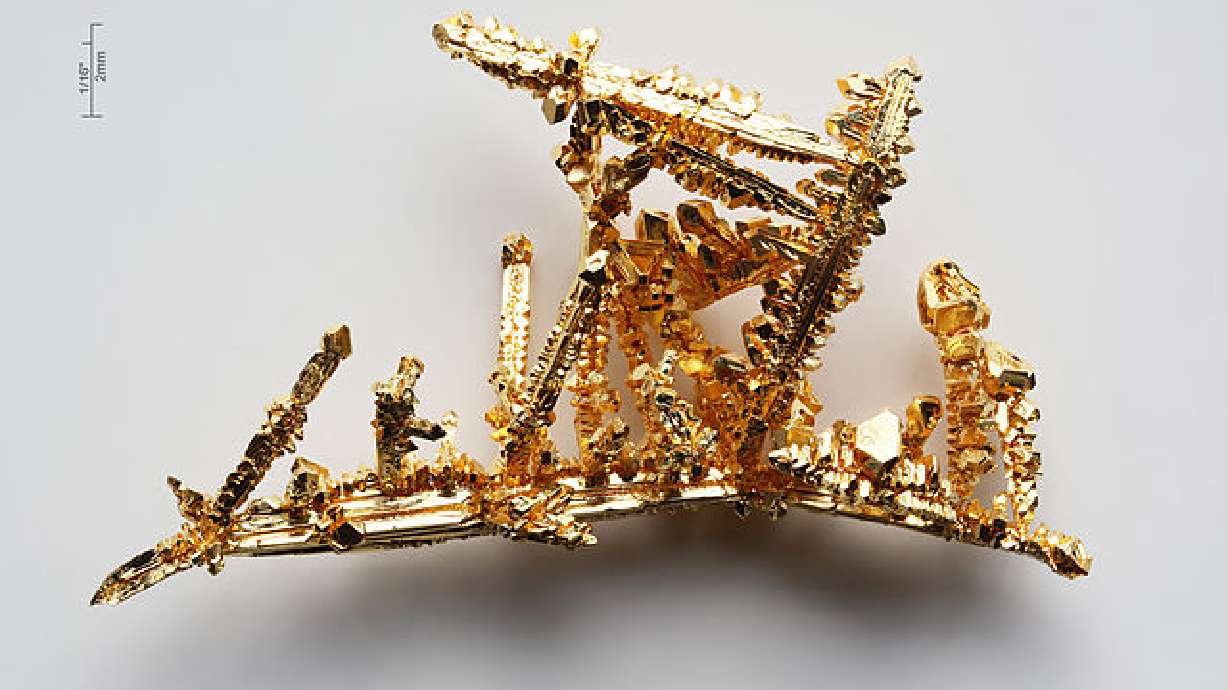Estimated read time: 2-3 minutes
This archived news story is available only for your personal, non-commercial use. Information in the story may be outdated or superseded by additional information. Reading or replaying the story in its archived form does not constitute a republication of the story.
SALT LAKE CITY — Gold may be beautiful, elegant, and extremely valuable, but the process for extracting it is nasty, poisonous, expensive and inefficient.
But science is full of serendipity, moments of accidental discovery like finding penicillin hiding in plain sight in a petri dish. Zhichang Liu, a post doctorate at Northwestern University, had just such a moment in the lab when he accidentally discovered a new method for extracting gold in a totally green way.
Liu was intending to build nanocubes to store gasses and large molecules. But what he ended up getting when he mixed cornstarch, gold and a potassium-bromide compound was needles.
"Initially, I was disappointed when my experiment didn't produce cubes, but when I saw the needles, I got excited," Liu said. "I wanted to learn more about the composition of these needles."
It turns out, the needles were composed of gold nanowires, leading to the possibility that the process could be repeated, scaled up and produce a method for extracting gold that is cheap, effective and non-toxic. And it is very specific for gold, excluding other chemically similar elements like platinum and palladium.
Related:
Currently, gold is extracted using extremely poisonous cyanide salts and gasses. It leaves behind difficult-to-clean waste that stays in the environment for quite some time.
However, Liu's new method uses alpha-cyclodextrin, a cyclic sugar with six glucose molecules. That, plus the potassium-bromine compound, are easy to clean. It can extract gold from raw sources or from gold scraps, meaning it could find a use in recycling consumer electronics.
"The elimination of cyanide from the gold industry is of the utmost importance environmentally," said Sir Fraser Stoddart, the Board of Trustees Professor of Chemistry in the Weinberg College of Arts and Sciences. "We have replaced nasty reagents with a cheap, biologically friendly material derived from starch."









